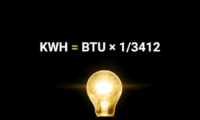What to Expect From an Electricity Quote
When you’re considering different electricity plans, the first thing you’ll encounter is an electricity quote.
This quote is crucial for American consumers to understand their potential energy costs. An electricity quote breaks down the charges you can expect from your energy supplier, helping you to budget and plan your expenses effectively.
In today’s energy market, clean energy and renewable energy are increasingly important factors. These aren’t just buzzwords but essential considerations that can influence your electricity costs.
When you receive an electricity quote, it’s important to look beyond just the numbers. Check if the quote includes renewable energy sources like solar power or wind energy. These options not only contribute to reducing emissions but may also affect your long-term energy costs.
Understanding your electricity quote is more than just knowing how much you’ll pay each month. It’s about being informed and making choices that align with both your financial and environmental priorities.
As renewable energy becomes more prevalent, your electricity quote will reflect these changes in the energy market. So, when you review your quote, consider not just the immediate cost, but also the type of energy you’re choosing to bring into your home.
Remember, your electricity quote is a significant indicator of your future relationship with your energy supplier. It’s essential to understand it thoroughly to ensure that you’re making a wise and informed decision about your energy consumption and costs.
Understanding Electricity Bills
When it comes to managing your home energy, a key aspect is understanding how your electricity bill is calculated. At the heart of this calculation are two fundamental units: kilowatts (kW) and kilowatt-hours (kWh). Knowing the difference between these units is crucial for a clear understanding of your electricity costs.
Kilowatts (kW) refer to the rate of electricity usage. Think of kW as the speed at which your home uses electricity. For example, a light bulb might use 0.06 kW, while a larger appliance like an air conditioner could use around 3 kW when it’s running.
Kilowatt-hours (kWh), on the other hand, represent the actual amount of electricity consumed over time. If you run that 0.06 kW light bulb for one hour, it uses 0.06 kWh of electricity. This unit is what your electricity bill typically measures. It shows not just how quickly you’re using electricity (kW), but how much you use over a period (kWh).
Your electricity supply is the total amount of electricity available for your home, and this supply is what you are charged for on your electricity bill. The electricity costs on your bill represent the amount you need to pay for the kWh you have consumed during the billing period. This cost can vary depending on the type of plan you have with your energy supplier and the rates they charge.
Understanding these concepts is vital for managing your home energy usage. By knowing what kW and kWh mean, you can better grasp how different appliances and habits impact your electricity bill. This knowledge helps you budget for electricity costs and make more energy-efficient choices.
Components of an Electricity Quote
An electricity quote is more than just a single figure. It’s a comprehensive breakdown of several components that together determine your total energy costs. Understanding each component is crucial when seeking energy solutions or considering alternatives like solar power.
Here’s a detailed look at the typical elements you’ll find in an electricity quote:
- Energy charges. This is the core of your electricity quote, representing the cost of the actual electricity you use. It’s typically calculated based on a rate per kilowatt-hour (kWh). The rate can vary depending on your energy plan and the energy source, such as whether it’s from conventional sources or solar power.
- Delivery charges. These charges cover the costs of delivering electricity to your home. This includes the maintenance of power lines, transformers, and other infrastructure necessary to ensure a steady and reliable electricity supply. Delivery charges are usually a fixed rate but can vary based on your location and the specific infrastructure needs of your area.
- Taxes. Your electricity quote will also include applicable state and local taxes. These taxes are mandated by government regulations and can vary depending on your geographical location.
- Fees. There might be additional fees included in your quote, such as a monthly service fee or a connection fee if you’re starting a new service. These fees help cover the administrative costs of managing your account and providing customer service.
- Miscellaneous charges. Occasionally, there might be other charges on your electricity quote. These could be for specific services or adjustments, such as a fee for green energy contributions or a charge for using energy during peak hours.
It’s crucial to review these components carefully, especially when considering energy solutions like solar power. For instance, if you’re generating your own electricity through solar panels, your energy charges might decrease, but you still need to account for delivery charges and other fees.
Each component of your electricity quote plays a role in the overall cost. Understanding these can help you make more informed decisions about your energy consumption and the types of energy solutions you might want to pursue.
Factors Affecting Electricity Quote
Your electricity quote is shaped by a variety of factors. Understanding these can help you anticipate changes in your electricity costs and make informed decisions, especially when considering renewable energy sources like solar panels.
Here are some key factors that influence your electricity quote:
- Time of use. Electricity rates can vary depending on the time of day you use energy. During peak hours, when demand is high, rates are often higher. Conversely, during off-peak hours, rates can be lower. This time-of-use pricing reflects the fluctuating demand on the energy grid and can significantly impact your electricity quote.
- Seasonal variations. Your electricity costs can also vary with the seasons. For instance, during summer and winter, when heating and cooling needs are higher, electricity demand increases, potentially leading to higher rates. Understanding these seasonal patterns can help you better anticipate changes in your electricity quotes.
- Energy market fluctuations. The energy market is subject to fluctuations based on supply and demand, regulatory changes, and global economic factors. These fluctuations can affect the cost of generating and delivering electricity, which in turn impacts your electricity quote.
- Renewable energy options. The growing availability of renewable energy sources, especially solar panels, is increasingly influencing electricity quotes. Generating your own electricity through solar panels can reduce your dependence on the grid, potentially lowering your energy charges. Some energy suppliers offer specific plans that incorporate renewable energy, which can affect the pricing structure of your electricity quote.
- Government policies and incentives. Policies promoting renewable energy and energy efficiency can also affect electricity quotes. Incentives for solar panel installations or energy-saving home improvements can lead to long-term savings on your electricity costs.
By understanding these factors, you can better navigate your electricity options and choose a plan that aligns with your usage patterns and preferences. Whether you’re exploring renewable energy solutions like solar panels or simply trying to find the most cost-effective plan, keeping these factors in mind will help you make a more informed decision.
Understanding Terms and Conditions
When evaluating electricity quotes, it’s crucial not to overlook the terms and conditions. These details can significantly impact your experience with different energy plans and suppliers.
Understanding the terms and conditions makes sure you are fully aware of what you’re agreeing to and helps avoid any surprises in your energy costs or service.
Here are some tips for navigating these important details:
- Rate structure. Look at how the energy supplier charges for electricity. Is the rate fixed, variable, or indexed? A fixed rate remains the same throughout your contract. A variable rate, however, can change based on market conditions, while an indexed rate is tied to a specific publically available index. Understanding this will help you anticipate potential changes in your electricity costs.
- Contract length. Pay attention to the duration of the contract. Are you committing to a long-term plan, or is it a month-to-month arrangement? Longer contracts might offer stability in rates, but they also reduce flexibility to switch plans or suppliers.
- Fees and penalties. Be aware of any fees for services like late payments or early termination of the contract. Knowing these can help you avoid unexpected charges.
- Renewal terms. Understand what happens when your contract ends. Does it automatically renew? Are the renewal terms the same, or do they change? This is particularly important to avoid being automatically enrolled in a plan that may not be the most beneficial for you.
- Green energy options. If you’re interested in renewable energy, check if the plan includes or offers options for green energy sources. This could be critical if your goal is to reduce your carbon footprint or support sustainable energy solutions.
- Customer service and support. Consider the level of customer service the energy supplier promises. What kind of support do they offer, and how accessible are they if you have questions or issues?
By thoroughly reviewing the terms and conditions of electricity quotes, you can get a full picture of your energy plan and make a more informed decision about which energy plan and supplier best meet your needs.
Red Flags to Watch Out For
When evaluating electricity quotes, it’s crucial to be aware of certain red flags that could signal misleading practices or even scams by power companies or electricians.
Here are some key points to keep in mind:
- Suspiciously low rates. Be cautious if rates seem too low compared to others. They might increase significantly later.
- Unclear terms and conditions. Transparency is key. Vague terms can be a sign of unreliability.
- Aggressive sales tactics. Reputable providers give you time to make informed decisions without pressure.
- Hidden fees. Watch for extra charges that could inflate your overall costs.
- Licensing and insurance. Ensure any electricians involved are fully licensed and insured for safety and compliance.
- Customer reviews. Check for consistent negative feedback or complaints, as these are warning signs.
For a more comprehensive understanding of potential pitfalls and how to avoid them, visit our detailed guide on Texas electricity plan red flags.
How to Compare Electricity Quotes
Comparing electricity quotes is a vital step in choosing the best electricity plan for your needs and budget. Here are some strategies to effectively compare these quotes, taking into account electricity plans and costs:
- Understand the rate structure. Electricity plans can have different rate structures — fixed, variable, or indexed. Compare these structures between quotes to understand how your electricity costs might change over time.
- Evaluate the energy charge. Look closely at the energy charge per kilowatt-hour (kWh). This is a key component of the overall cost and can vary significantly between plans.
- Consider contract length. Different plans come with different contract lengths. Consider how long you want to commit to a particular rate and plan.
- Examine fees and extras. Be aware of additional fees, such as connection or disconnection fees, and any extra services included. These can affect the overall value of the plan.
- Review terms and conditions. Pay attention to the terms and conditions for each plan, focusing on aspects like renewal terms, cancellation policies, and any guarantees.
- Use comparison tools. Utilize online comparison tools and resources. Many websites and services can help you compare different electricity quotes and factor in your specific usage patterns and preferences.
- Check for renewable energy options. If you’re interested in renewable energy, see which plans offer options like solar or wind power. This could be a deciding factor if you’re committed to sustainable energy solutions.
- Consider customer service. Evaluate the reputation of the energy supplier in terms of customer service. Good customer support can be invaluable, especially if issues arise with your service.
By carefully comparing electricity quotes, considering all these aspects, you can make a well-informed decision that balances your electricity needs with your financial preferences.
Remember, the cheapest plan isn’t always the best. Find the right plan that offers value and aligns with your energy goals.
Questions to Ask the Electricity Provider
When engaging with an electricity provider, asking the right questions is essential to understand their services and your potential energy agreement. Here are some important questions to consider:
- What are the different rate structures available? Understanding whether the provider offers fixed, variable, or indexed rates will help you anticipate how your electricity costs might fluctuate over time.
- Can you explain the terms and conditions in detail? This ensures you are aware of all aspects of the agreement, including any hidden fees or clauses that could affect your costs or service.
- What energy sources do you use? Inquiring about the energy sources, including whether they use nuclear power, helps you understand the environmental impact and the stability of the supply. Nuclear power, for example, has low emissions but comes with other considerations like waste management.
- What are the emissions associated with your energy production? This question is particularly relevant if you are environmentally conscious. It helps you assess the provider’s commitment to reducing carbon footprint.
- Are there any renewable energy options? If you prefer cleaner energy sources, ask about options like solar or wind power.
- What happens in case of power outages? Understanding their protocol during outages assures you of their reliability and customer support during emergencies.
- How is billing handled? Knowing how and when you’ll be billed helps you manage your finances better.
- What are the terms for contract renewal or cancellation? This helps avoid surprises at the end of your contract term and gives you flexibility.
Effective communication with your electricity provider means being clear, concise, and fully understanding their responses.
Don’t hesitate to ask for clarifications on complex terms, especially regarding energy sources and their environmental impact. Your goal should be to gather enough information to make an informed decision that aligns with your energy needs and values.
Take Control of Your Electricity Costs with Payless Power
Navigating the world of electricity plans can be complex, but with the right information and a reliable partner, you can take control of your electricity costs effectively.
Payless Power is committed to providing you with straightforward, affordable electricity plans tailored to meet your unique needs.
Ready to make a smart choice for your energy future? Explore the diverse range of electricity plans offered by Payless Power and find the perfect match for your household or business.
With transparent pricing, flexible payment options, and a customer-centric approach, Payless Power makes it easy and stress-free to manage your electricity costs.
Don’t wait to start saving and enjoying the benefits of a reliable electricity plan. Enroll with Payless Power today and experience the difference in your electricity service and costs.
What our customers are saying
See why our power customers say we're the best electricity provider in Texas!
I was worried about getting electricity for my home through a prepaid company. I was calling around to see different rates then going through all the hassle of credit checks while dropping points each…
I have been with this company for several years and have been very happy since. Even when I moved, they made my usually stressful situation very easy and carefree. I recommend them to everyone that I…
I have enjoyed the service for 2 years now. In the beginning this service was planned to be temporary but with the service being so effective for me i decided to keep it for the long haul. I’m a happy customer.









